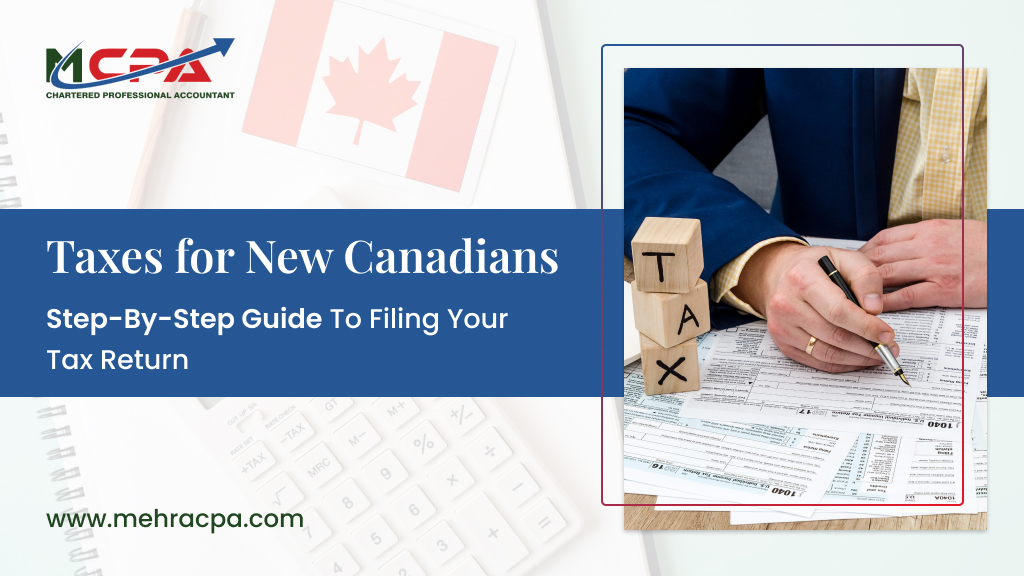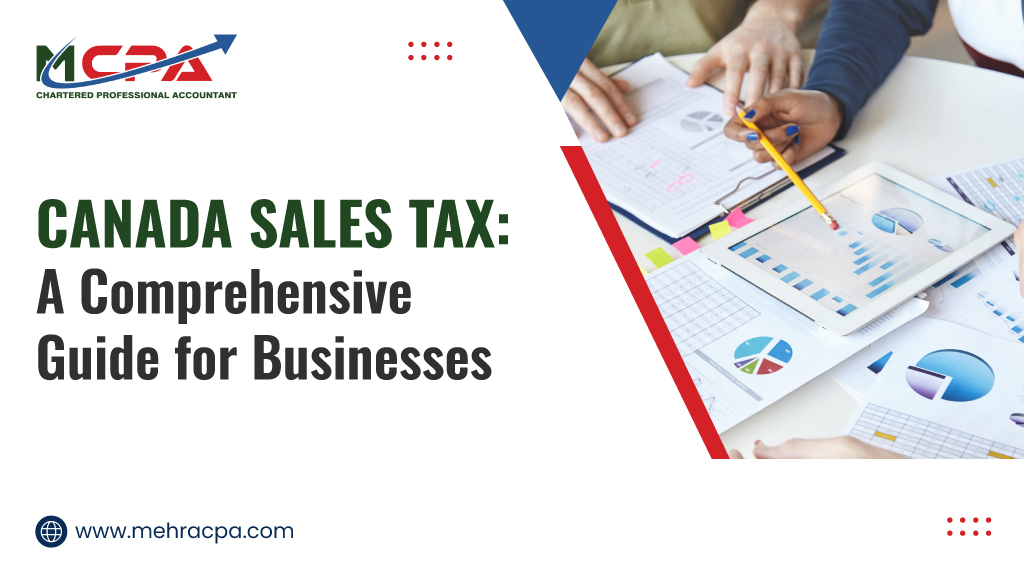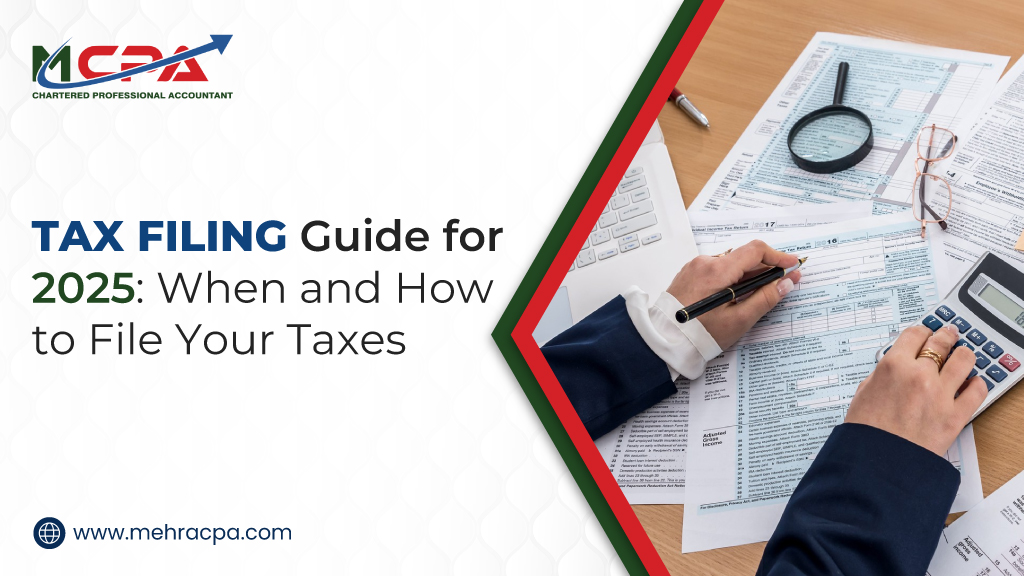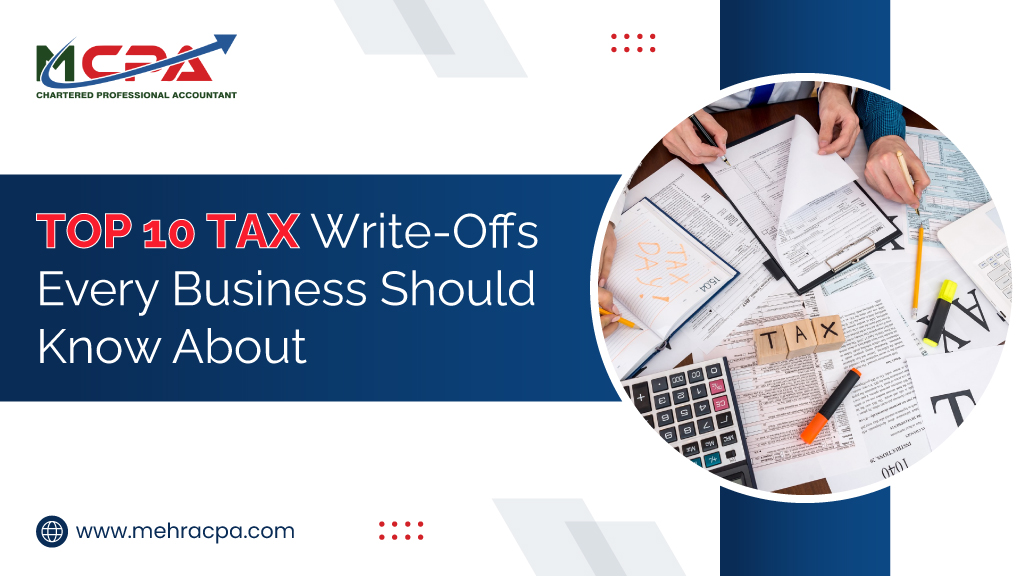
Recent Post
Taxes for New Canadians: Step-by-Step Guide to Filing Your Tax Return
Moving to Canada is an exciting journey filled with new…
Canada Sales Tax: A Comprehensive Guide for Businesses
What is Sales Tax? If you own a business in…
Tax Filing Guide for 2025: When and How to File Your Taxes
Filing taxes can seem like a daunting task, but with…
Top 10 Tax Write-Offs Every Business Should Know About
Running a business comes with a variety of expenses, from…
Every year, Canadians are required to file their taxes on time. Missing a tax deadline can lead to penalties, interest charges, and delays in refunds or benefits. That is why understanding the tax calendar for 2025 is important for individuals, self-employed workers, and business owners alike. This blog outlines all the major tax deadlines in 2025 to help Canadians stay prepared and avoid last-minute stress.
Filing taxes is not just about following the law. It is also about protecting your finances. Filing late can result in costly penalties and missed opportunities to claim benefits. Whether you are employed, self-employed, or own a business, planning ahead helps you manage your money better. This blog offers a complete guide to the key dates and requirements for 2025.
Key Tax Deadlines for Individuals in 2025
February 24, 2025: NETFILE Opens
The Canada Revenue Agency (CRA) will open its NETFILE service for the 2024 tax year on February 24, 2025. This means you can begin submitting your income tax return online. Filing early gives you more time to plan and usually leads to faster refunds. If you are expecting a refund, the earlier you file, the sooner you can receive your money, which could help with early-year expenses or investments.
April 30, 2025: Filing and Payment Deadline
April 30, 2025, is the deadline to both file your personal income tax return and pay any taxes owed. This deadline applies to most Canadians, including employees and retirees. If you do not file or pay by this date, the CRA may charge late-filing penalties and daily interest on the balance owed. Filing on time also ensures that any benefits you receive, like the Canada Child Benefit or GST/HST credit, continue without interruption.
Deadlines for Self-Employed Individuals
Self-employed individuals have slightly different rules.
June 15, 2025: Filing Deadline for Self-Employed
If you or your spouse or common-law partner is self-employed, you have until June 15, 2025, to file your tax return. However, since June 15 falls on a Sunday in 2025, the CRA will likely accept returns filed by Monday, June 16. It is important to plan accordingly, as filing late could affect your access to benefits or even lead to audits if taxes are not paid accurately.
April 30, 2025: Payment Deadline Still Applies
Even though you can file later, the deadline to pay any taxes you owe is still April 30, 2025. If you pay after this date, the CRA will start charging interest on the unpaid balance. Keeping track of your income and expenses throughout the year can make it easier to calculate what you owe and avoid surprises.
RRSP Contribution Deadline
March 1, 2025: Final Day for RRSP Contributions
To reduce your taxable income for the 2024 tax year, you must make contributions to your Registered Retirement Savings Plan (RRSP) by March 1, 2025. Contributions made after this date will apply to the 2025 tax year. RRSPs are a valuable tool for retirement planning and can significantly lower your taxable income, especially for those in higher tax brackets.
Instalment Deadlines for Individuals
If you owed more than $3,000 in taxes in any of the past two years ($1,800 for residents of Quebec), you may be required to pay your taxes in instalments.
Instalment Due Dates in 2025:
- March 15, 2025
- June 15, 2025
- September 15, 2025
- December 15, 2025
Make sure you pay these amounts on time. If not, the CRA may charge interest on the missed payments. Setting up reminders or automatic payments can help avoid missed deadlines.
T4 and T5 Slips: Employer and Payer Deadlines
If you are an employer or pay dividends or interest, you must file information slips.
February 28, 2025: Deadline for T4 and T5 Slips
All T4 (employment income) and T5 (investment income) slips must be submitted to the CRA and provided to employees or recipients by February 28, 2025. These slips are necessary for individuals to file their personal income tax returns and must be accurate to prevent filing errors or audits.
Corporate Tax Deadlines
Corporate tax deadlines depend on the company’s fiscal year-end.
Filing Corporate Tax Returns (T2)
A T2 return must be filed no later than six months after the end of your corporation’s fiscal year. For example, if your fiscal year ends on December 31, 2024, the filing deadline is June 30, 2025.
Payment Deadlines for Corporations
Taxes owed are due either two or three months after the fiscal year-end, depending on whether the corporation qualifies as a Canadian-Controlled Private Corporation (CCPC). Generally, CCPCs with small business deductions have three months to pay.
It is wise to work with an accountant or tax professional to avoid underestimating your tax obligations. Many businesses face audits or penalties due to misfiled returns or missing documents.
Penalties for Missing Deadlines
Failing to file or pay your taxes on time can result in serious financial consequences.
Late-Filing Penalty
The CRA charges a penalty of 5% of the unpaid taxes if your return is late, plus 1% of the balance for each full month the return is late, up to 12 months.
Interest Charges
Interest starts the day after your due date. This applies to unpaid taxes, late instalments, and other balances owed.
Impact on Benefits
Failing to file on time can delay the processing of government benefits such as the GST/HST credit, Canada Child Benefit, and other income-tested programs.
How to File Your Taxes
You have several options when it comes to filing your return:
NETFILE
NETFILE is a CRA-approved online filing system. You can use certified software to file your return directly. This method is the fastest and most convenient for most individuals.
EFILE
This method allows authorized tax preparers to file taxes on behalf of individuals. It is a good option if you are working with an accountant or a tax service.
Paper Filing
You can still file a paper return by mailing it to the CRA. This method takes longer to process and increases the chances of delays, especially close to the filing deadline.
Preparing for Tax Season
Start early to make filing your return easier.
Collect Your Documents
Gather your T4s, T5s, RRSP contribution slips, receipts, and other supporting documents. Keeping them organized will reduce the time it takes to file.
Set Reminders
Mark important deadlines in your calendar so you do not miss them. Using digital calendars or reminder apps can keep you on track.
Use CRA My Account
This online tool gives you access to your previous tax returns, RRSP limits, instalment reminders, and more. It also allows you to track refunds and submit documents electronically.
Hire a Tax Professional
If your tax situation is complex, a CPA or tax expert can help ensure you file correctly and claim all your deductions.
Business Owners: What You Need to Know
If you own a business, staying compliant involves more than just filing a T2 return.
GST/HST Filing Deadlines
Your filing frequency (monthly, quarterly, or annually) depends on your sales volume and CRA requirements. Be sure to know your due dates. Missing a GST/HST payment can lead to serious fines and penalties.
Payroll Remittances
If you have employees, you must remit payroll deductions (income tax, EI, and CPP) on time. The due date is usually the 15th of the following month. Employers who fail to remit on time can face penalties and interest charges.
Year-End Preparation
Close your books, prepare your financial statements, and file the necessary slips and returns promptly to avoid fines. Business owners should also review potential deductions and credits that may lower their tax burden.
Avoiding Tax Scams
Tax season often comes with a rise in scams. Protect yourself by knowing what CRA will and will not do.
CRA Will Never:
- Ask for payment by gift cards or cryptocurrency.
- Send threats by phone or email.
- Ask for personal details via text messages.
If you receive a suspicious message, contact CRA directly using the number listed on their official website.
Summary Table of 2025 Tax Deadlines
| Date | Deadline Type |
| February 24 | NETFILE opens |
| February 28 | T4 and T5 slips due |
| March 1 | RRSP contribution deadline |
| March 15 | 1st instalment payment due |
| April 30 | Filing and payment for individuals |
| June 15 | 2nd instalment due / Self-employed filing |
| September 15 | 3rd instalment payment due |
| December 15 | 4th instalment payment due |
Stay on Track: Mark These 2025 Tax Deadlines Now
Tax deadlines are not flexible. Knowing them and preparing ahead of time can save you from penalties, interest, and stress. Whether you are an individual taxpayer, self-employed, or a business owner, make 2025 the year you stay ahead. Use the deadlines in this guide to build your financial plan and stay in control.
If you are unsure about any part of your tax obligations, reach out to a qualified tax professional. Staying informed and organized is the best way to meet your tax responsibilities and protect your financial future. As the tax landscape continues to evolve, proactive planning remains one of the most effective tools for ensuring compliance and maximizing tax advantages. Begin today by setting your calendar, collecting your documents, and seeking professional help if needed.
FAQs
- What is the deadline to file my personal tax return in 2025?
The deadline is April 30, 2025, for most Canadians to file and pay any taxes owed.
- When can I start filing my 2024 tax return?
You can begin filing through NETFILE starting February 24, 2025.
- Do self-employed people have extra time to file taxes?
Yes, self-employed individuals and their spouses or common-law partners have until June 15, 2025, to file. However, payment is still due by April 30, 2025.
- What happens if I miss a tax deadline?
The CRA charges a late-filing penalty of 5% plus 1% for every full month the return is late (up to 12 months), along with daily interest on unpaid amounts.
- When is the RRSP contribution deadline for the 2024 tax year?
You must contribute to your RRSP by March 1, 2025, to count for the 2024 tax year.




